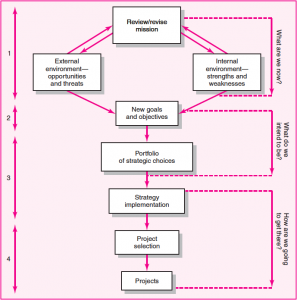“vision can be formed by asking what the ACT Government and the ACT community want to become and what they want to achieve in the future”
Problems with Current Visions
The ACT Government acknowledges they have no single unified vision for waste education that directly supports an agreed set of desired outcomes [1]. The lack of a unified vision has led to many problems and issues like the failure in the realisation of outcomes of waste strategy in ACT, multiple interpretations of the multiple visions for education; and ineffective waste education strategy and campaigns.
Despite the “recycling expert” campaign, after whose launch, a third of recyclable materials were still being disposed of incorrectly at domestic level and a survey has shown that 1 in 10 residents practiced bundling recyclables in plastic bags in Canberra, which should be avoided [2].
Further, in 2016, in select medium-sized organisation offices in Canberra, only about half of the employees practiced waste segregation and management. The poor waste management practices were a result of laziness and carelessness [3].
Forming a Unified Vision for Education
The strategy for increasing effective waste management should be initiated by articulating a single main vision which should be embodied in strategies and projects for increasing the overall education levels in the ACT in different waste streams. However, strategies for different waste streams may be different.
Larson et. al. [4] suggested that vision, just like a mission, is necessary for identifying the scope and focus on decision making (pp. 26). It needs to be directed at employees and should lay future directions for the organisation.
The vision can be formed by asking what the ACT Government and the ACT community want to become and what they want to achieve in the future. This should be followed with creating policies for how to bring about change/improvements. The vision should be embodied in the policies developed. Finally, implementing the policies through projects and campaigns should be undertaken.

Figure 1 Strategic Management Process showing an approach to developing a unified vision for achieving target outcomes (Larson et al, 2014)
Points to consider in developing a vision
The ACT Government can consider some of the following key characteristics to include in the vision for waste education in ACT:
- The vision should be described clearly and simply so that all the stakeholders are able to understand it;
- The vision should be ethical and reflect equity;
- It should be conveyed in a concise language;
- The vision should sound ambitious but balanced with realistic, achievable and specific targets for each of the waste streams;
- The vision should be dynamic, as the development of strategies might bring in some changes;
- It should be able to infuse passion and emotion for the strategy implementers and outcome realtors;
- The vision should be able to create mental visualisations of the initiative;
- The vision should finally be conveyed in actions as the vision can be realised only through actions.
Interested in learning more about waste and minimising our consumption? Register for our next Environment Exchange on 27 June: Reducing Canberra’s Waste Mountain
Bibliography
- ACT Government, Draft Business Case, p. 11. 2017.
- Burgess, K. Canberra’s Ricky Starr recycling campaign divides viewers. The Canberra Times 2015 [cited 2017 7 April]; Available from: http://www.canberratimes.com.au/act-news/canberras-ricky-starr-recycling-campaign-divides-viewers-20151209-glj2ed.html.
- Liu, Z. Rethinking office based commercial waste recycling. 2016 [cited 2017 1 March]; Available from: https://conservationcouncil.org.au/wp-content/uploads/Rethinking-Office-based-Commercial-Waste-Recycling-Zhiyan-Liu.pdf.
- Larson, E., et al., Project Management : The Managerial Process. 2014.
Thank you to Sam Patil for compiling this material.
